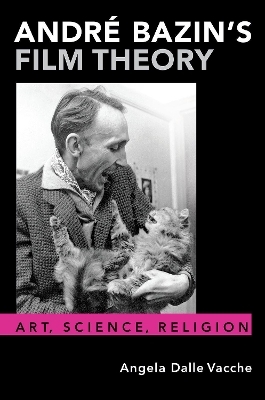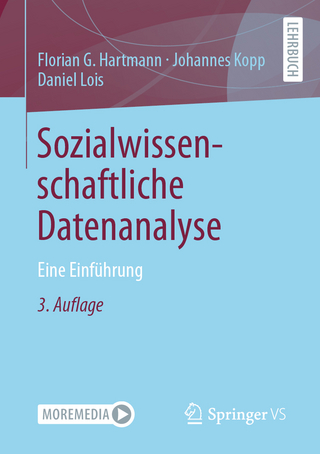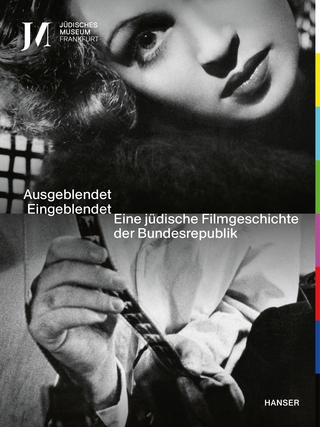
André Bazin's Film Theory
Oxford University Press Inc (Verlag)
978-0-19-006729-8 (ISBN)
Through metaphors and allusions to art, science, and religion, André Bazin's writings on the cinema explore a simple yet profound question: what is a human? For the famous French film critic, a human is simultaneously a rational animal and an irrational being. Bazin's idea of the cinema is a mind-machine where the ethical implications have priority over aesthetic issues. And in its ability to function as an art form for the masses, cinema is the only medium that can address an audience at the individual and community levels simultaneously-- the audience sees the same film, but each individual relates to the narrative in a different way. In principle, cinema can unsettle our routines in productive ways and expand our sense of belonging to a much larger picture.
By arguing that this dissident Catholic's worldview is anti-anthropocentric, Angela Dalle Vacche concludes that André Bazin's idea of the cinema recapitulates the histories of biological evolution and modern technology inside our consciousness. Through the projection of recorded traces of the world onto a brain-like screen, the cinema can open viewers up to self-interrogation and empathy towards Otherness. Bazin was neither a spiritualist nor an animist or a pantheist, yet his film theory leads also to ideas of a more cosmological persuasion: through editing and camera movement, cinema explores our belonging to a vast universe that extends from the microbes of the microscope to the stars of the telescope. Such ideas of connectedness, coupled with Bazin's well-known emphasis of realism, form the foundation for his film theory's embrace of Italian neorealism. Choosing to avoid a quantitative naturalism based on accumulation of details, Bazin's theory instead promotes the kind of cinema that celebrates perceptual displacement, the objectification of human behavior, and one's own critical self-awareness.
Angela Dalle Vacche is Professor of Cinema Studies at the Georgia Institute of Technology in Atlanta. She has written extensively on the representation of history in film; on Italian women and early cinema; on intermediality and color. She is the author or editor of such works as Film, Art, New Media: Museum without Walls? (2012) and Diva: Defiance and Passion in Early Cinema (2008), and is currently developing a book on African cinema.
Preface & Acknowledgements
Introduction: The Soul of Cinema
The Structure of the Book
Conceptual Key Words
Cinema's Special Eye
Lady in the Lake
Cinema as Mind-Machine
Art
A Christological Ontology
Impure Cinema
Pure Cinema
The Postwar Art Documentary
Painting as Object, Cinema as Event
Frame and Screen
The Objects of Still Life and the Camera Lens as Object
From Painting to Biology
Science
Darwin and Bergson
Evocative Affinities
Bergson, Einstein, Heisenberg
Geometry and the Snowflake
Mathematics and the Policier
Miraculous Mathematics
Neorealism and Calculus..
Michael Faraday
Religion
Immanence and the Supernatural
Catholics and Communists
Taking Risks
Looking at Oneself from the Outside
Charlot and Cabiria
Saint Sulpice and Max Ophuls
Robert Delannoy's Religious Adaptations
Bazin's Ontology, Bresson's Stylistics
Epilogue: Wind and Dust
Anti-Anthropocentric Anthropocosmomorphism
The Wild Grass of Saintonge
Bibliography: Primary and Secondary Sources
Primary Sources: Articles by André Bazin, cited in each chapter
Primary Sources: Compilations of essays by André Bazin
Secondary Sources
Index of Names and Films
List of Illustrations
| Erscheinungsdatum | 06.01.2020 |
|---|---|
| Zusatzinfo | 15 photographs |
| Verlagsort | New York |
| Sprache | englisch |
| Maße | 163 x 243 mm |
| Gewicht | 476 g |
| Themenwelt | Kunst / Musik / Theater ► Film / TV |
| Sozialwissenschaften ► Kommunikation / Medien ► Medienwissenschaft | |
| ISBN-10 | 0-19-006729-2 / 0190067292 |
| ISBN-13 | 978-0-19-006729-8 / 9780190067298 |
| Zustand | Neuware |
| Haben Sie eine Frage zum Produkt? |
aus dem Bereich


